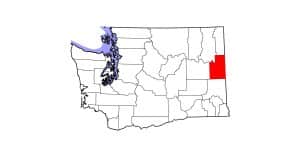10 Composting Resources on TheHorse.com

For additional composting and manure management information, visit the “Waste & Manure Management” topic page or search “composting” or “manure management” on TheHorse.com
Fact Sheet: Composting Efficiently managing manure is an important aspect of caring for horses. This free report provides a detailed overview of composting so you can decide if it’s right for your operation. Learn about details from how to choose the right compost location to how to assess the maturity of compost. Download Now
Blog: A 5-Step Guide to Composting Horse Manure If you care for horses on your own property, then you have no doubt wondered about what to do with that huge mound of manure and stall waste generated by your horse. Wonder no more: Follow five easy steps and you’ll find that pile of manure behind your barn will quickly turn into black gold!
TheHorse.com is home to thousands of free articles about horse health care. In order to access some of our exclusive free content, you must be signed into TheHorse.com. Already have an account?Create a free account with TheHorse.com to view this content.
Start your free account today!
and continue reading.

Written by:
The Horse Staff
Related Articles
Stay on top of the most recent Horse Health news with












